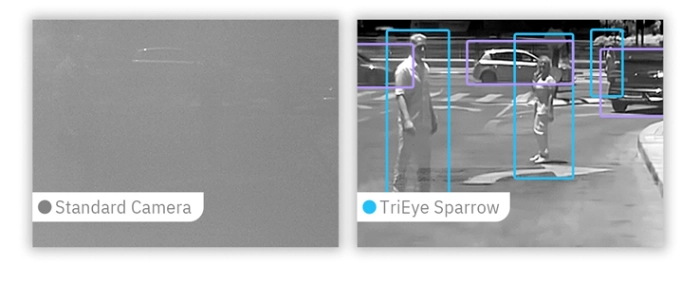
© TriEye
Business |
TriEye and DENSO to evaluate the first CMOS-based SWIR camera
Israeli startup TriEye, whose Short-Wave Infrared (SWIR) sensing technology enhances visibility in adverse weather and night time conditions, has officially revealed Sparrow – the first CMOS-based SWIR camera, which is currently being evaluated by DENSO.
Among the companies that are collaborating with TriEye and are evaluating the Sparrow is the global automotive supplier DENSO, in addition to car manufacturer Porsche – who made an investment in the company back in 2019.
The camera has the ability to deliver mission-critical image data under a wide range of scenarios, made possible by leveraging the unique physical properties of the SWIR spectrum, which is now being thoroughly being evaluated the likes of DENSO and Porsche, as well as additional unnamed TriEye customers.
The sensor is particularly effective in low visibility conditions such as identifying black ice, dark clothed pedestrians, and cyclists - all under low-light or other common low visibility conditions, detection scenarios that are paramount for the automotive industry.
“We are proud and delighted to announce our collaboration with DENSO which marks a meaningful step forward in delivering our mission of solving the low visibility challenge,” says Avi Bakal, TriEye’s Co-Founder and CEO, in a press release. “The joint work has been greatly beneficial since day one, bringing together DENSO’s innovative approach and market experience with TriEye groundbreaking technology.“
TriEye aims to solve the low-visibility challenge on the roads by making SWIR cameras affordable and accessible for the global mass market. The release of Sparrow marks a major milestone towards that goal. The company is expected to launch the first samples of Raven, the world's first CMOS-based SWIR HD camera, later this year.
TriEye’s SWIR camera can be integrated as a standard visible camera and can reuse existing visible image AI algorithms, which saves the effort of recollecting and annotating millions of miles.

